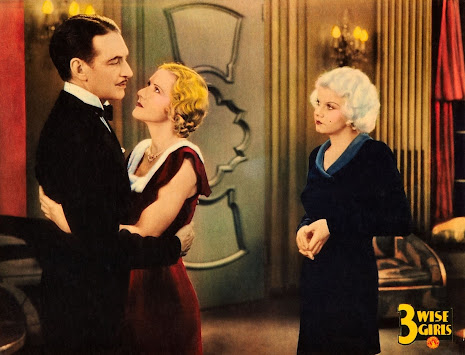Playing at Harvard Film Archive on November 14, 2025. This note written for that occasion. – EK
Three Wise Girls (1932)
Director: William Beaudine
A luminous Jean Harlow received her first top billing in this pleasurable pre-Code film, made in the popular subgenre of the country-blonde-making-it-big-in-New-York—only to be exposed to the emptiness of success. The film is directed by old Hollywood’s most indefatigable workhorse, William Beaudine, who is credited with somewhere between 400 and 500 films—including masterpieces like Sparrows and cult oddities such as Bela Lugosi Meets a Brooklyn Gorilla. François Truffaut had a soft spot for this imaginative craftsman’s B movies, praising their “charm” and “modesty”—qualities that also apply to the comedy/drama Three Wise Girls. This is one of Beaudine’s classiest and wittiest works from the 1930s, a time when he still had access to stronger material—this script written by Agnes Christine Johnston, who explores the question of virtue versus career, with sharp dialogue penned by Frank Capra’s regular collaborator, Robert Riskin. Among other things, the film includes a memorable lesson on how to “forget about your hips when you walk,” since “they know how to take care of themselves.”


.jpg)





